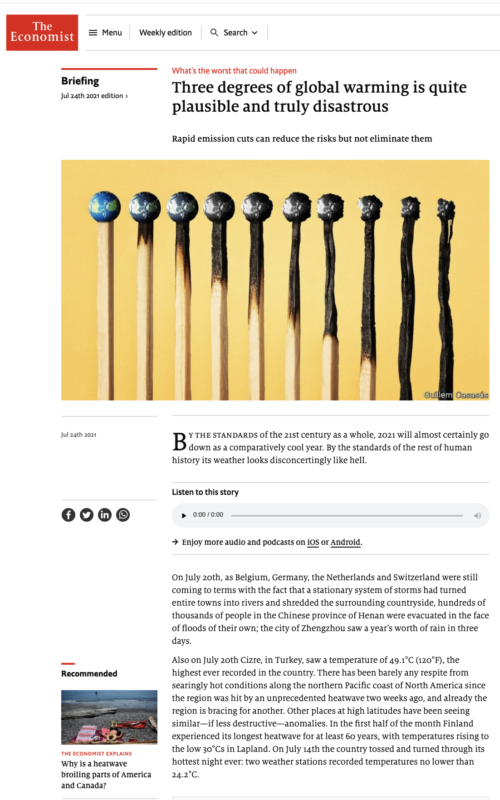Media coverage
Share
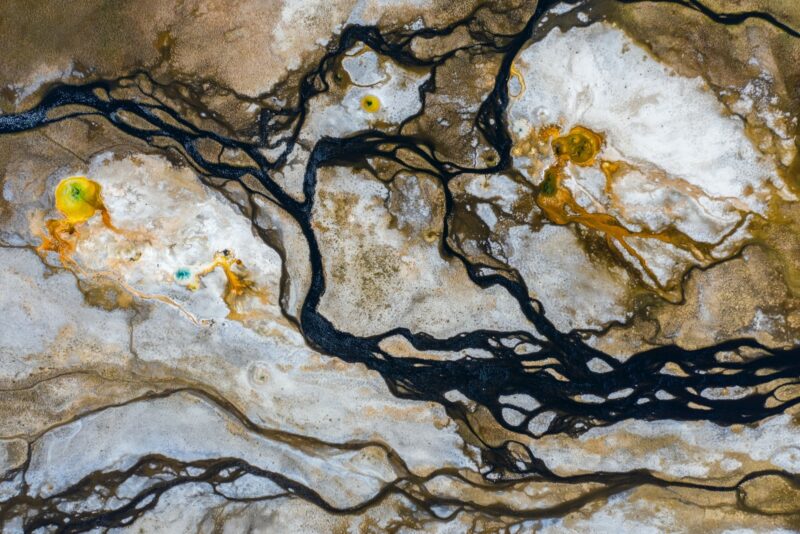
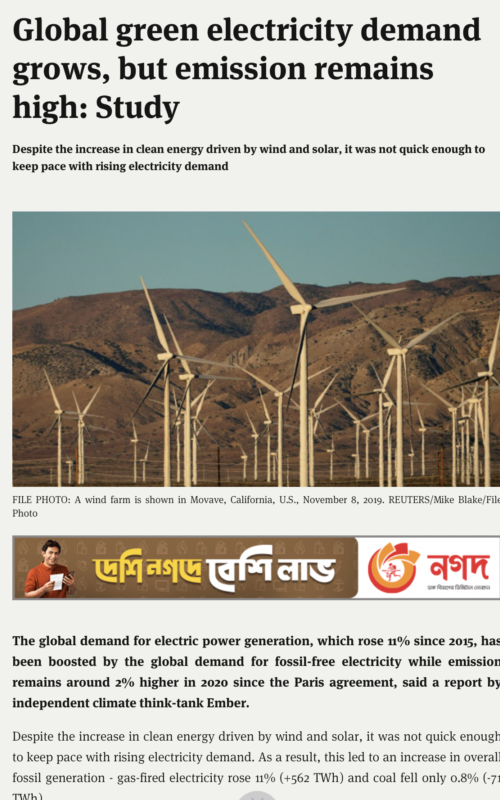
Climate Analytics' analysis of IPCC 1.5 degree scenarios reiterated by the UN Secretary General in March 2021 shows that OECD nations should end coal use entirely by 2030 and all coal-fired power stations must be shut by 2040 at the latest. Nevertheless, TBS News article mentions that global coal generation was only 0.8% lower in 2020 than in 2015, far away from the 2040 objective.
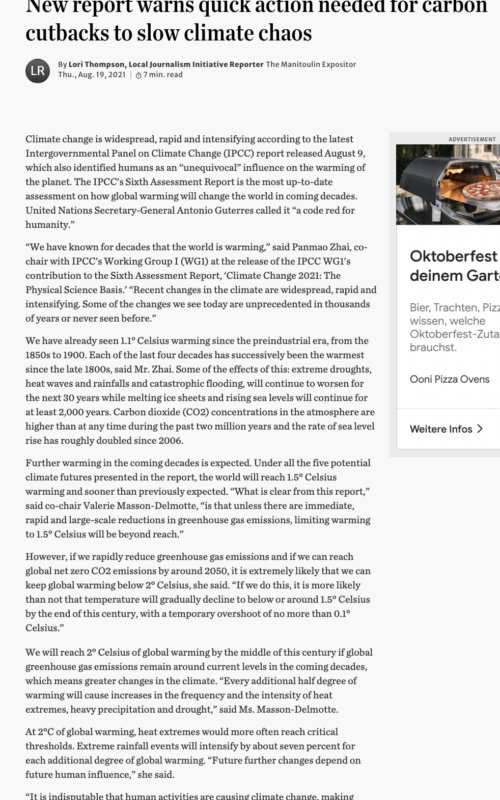
New analysis from the Climate Action Tracker rates Canada to be on track for a likely temperature increase of between two and three degrees Celsius during this century.
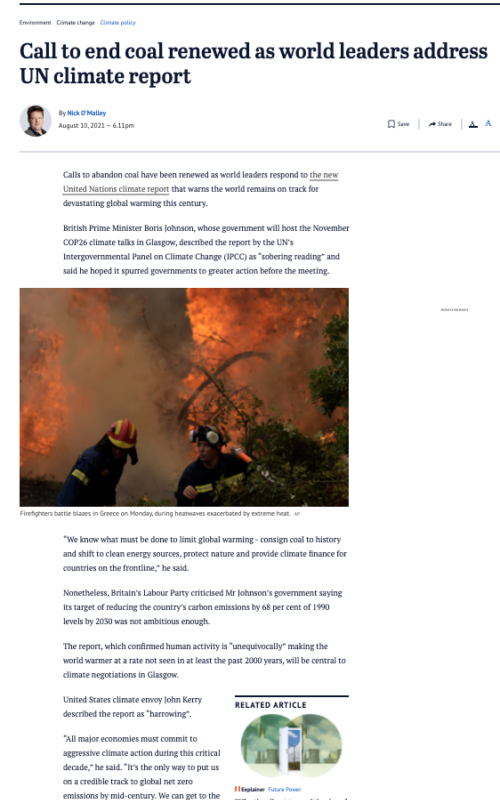
Climate Analytics CEO, Bill Hare comments on Australia federal government statement about "preferably" wanting to reach net zero emissions by 2050 and its lagging emission reduction targets.
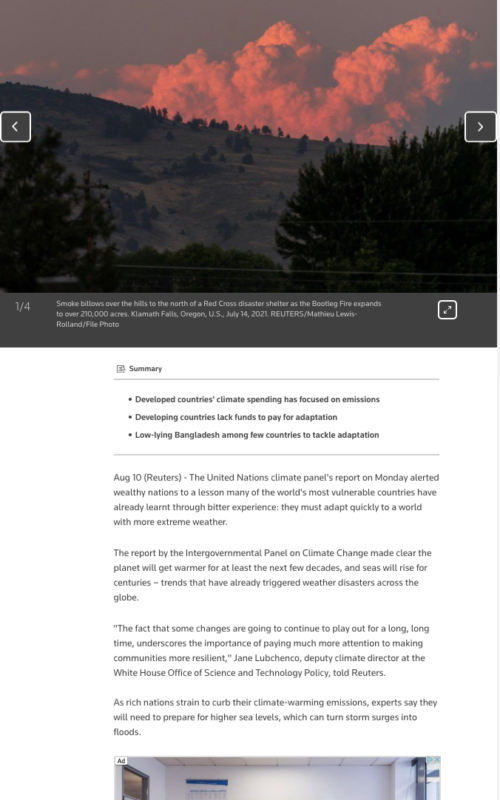
Following the IPCC report's warning that the world will get hotter, and seas will rise for centuries, Climate Analytics CEO Bill Hare comments on the lack of our societies' preparedness for unavoidable climate impacts.

The new IPPC report warns that societies will need to adapt and prepare for higher sea levels. Climate Analytics CEO Bill Hare, comments that adaptation and resilience investments are generally underfunded limiting the capacity of societies to prepare for the future.
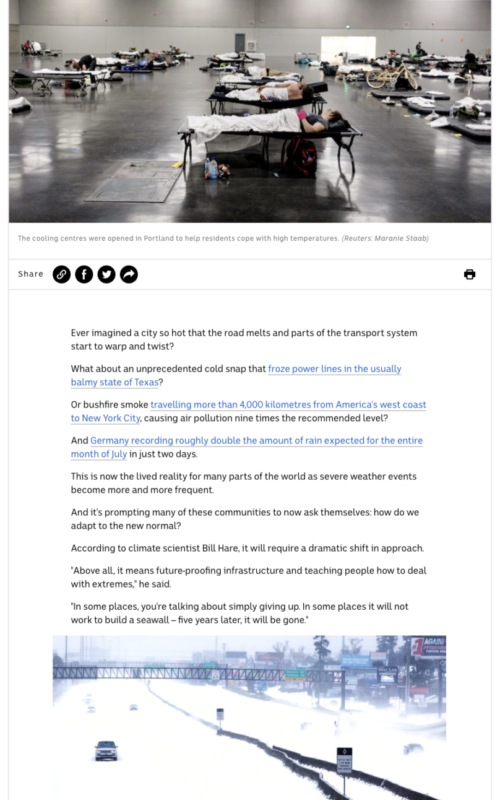
Bill Hare, CEO of Climate Analytics, warns that a dramatic shift in approach is required to respond and adapt to climate change and extreme weather.
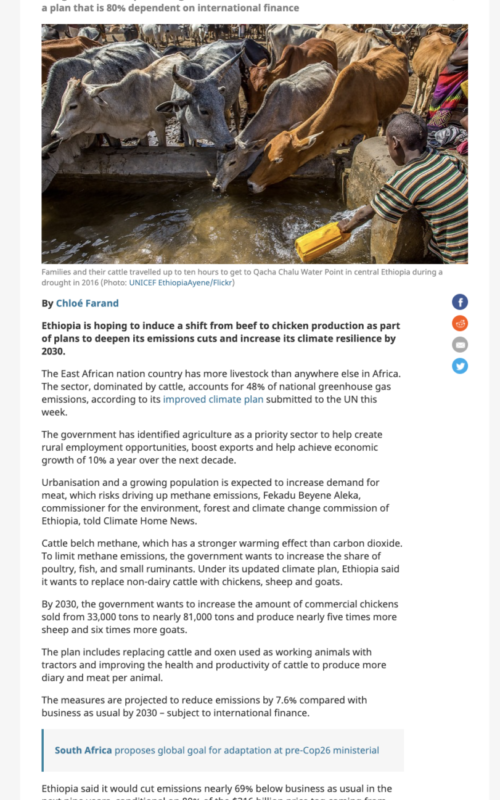
Carley Reynolds, climate and energy analyst at CA, comments on Ethiopia's new proposed NDC, highlighting the challenge to keep Ethiopia's power system clean and avoid investing in fossil fuels as electricity access increases.
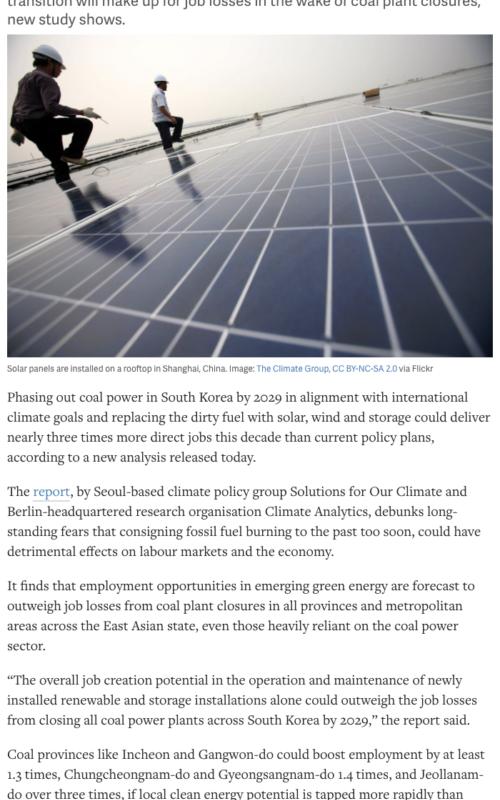
Faster energy shift could triple South Korea's job creation this decade, outweighing coal job losses
Climate Analytics' latest report on job opportunities from a coal-to-renewables transition in South Korea is covered by EcoBusiness.

Climate Analytics' data on coal exports is cited in this article on the lack of climate action in Australia and the potential endangerment of the Great Barrier Reef.
